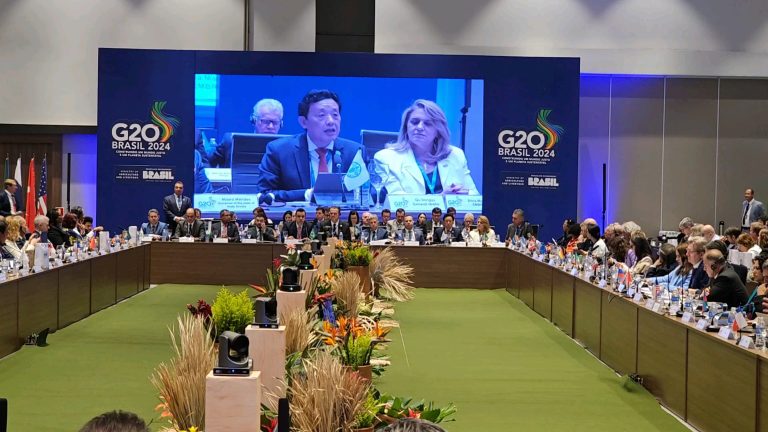São Paulo – Latin American countries, especially Brazil, have made progress in combating hunger, but in African nations, food insecurity continues to grow. It is the G20’s duty to seek solutions for hunger, said FAO Director-General Qu Dongyu on Thursday (12). He was speaking at the official opening of the G20 Agriculture Working Group meeting held in Chapada dos Guimarães, Brazil.
In his speech, Qu reminded that one of the key values of the G20 – the group of the world’s largest economies – is to serve as venue for policy coordination among the major global economies. However, he noted that the world is still far from achieving the “Zero Hunger” goal set by the United Nations’ Sustainable Development Goals. “We need to step up food assistance while developing and implementing strategies that protect the environment and generate fair incomes for farmers,” he said.
Conflicts increase the challenge of combating hunger
The FAO highlighted setbacks and challenges in combating hunger, citing the 25 million people facing food insecurity in Sudan due to conflicts, as well as the 2.2 million people in the Gaza Strip who need food and assistance for survival. The organization also mentioned the approximately one million people facing food emergencies in each of the following countries: Afghanistan, the Democratic Republic of Congo, Myanmar, South Sudan, Haiti, and Nigeria. “We cannot fail them,” Qu said.
After two days of preparatory work, the G20 Agriculture Working Group was officially opened on Thursday (12), with the presence of, in addition to Dongyu, Brazil’s Ministers of Agriculture and Livestock, Carlos Fávaro, and of Agrarian Development and Family Agriculture, Paulo Teixeira. In November, the G20 summit will bring together global leaders in Rio de Janeiro.
Read more:
Morocco a model for agrifood transformation: FAO
Translated by Guilherme Miranda




